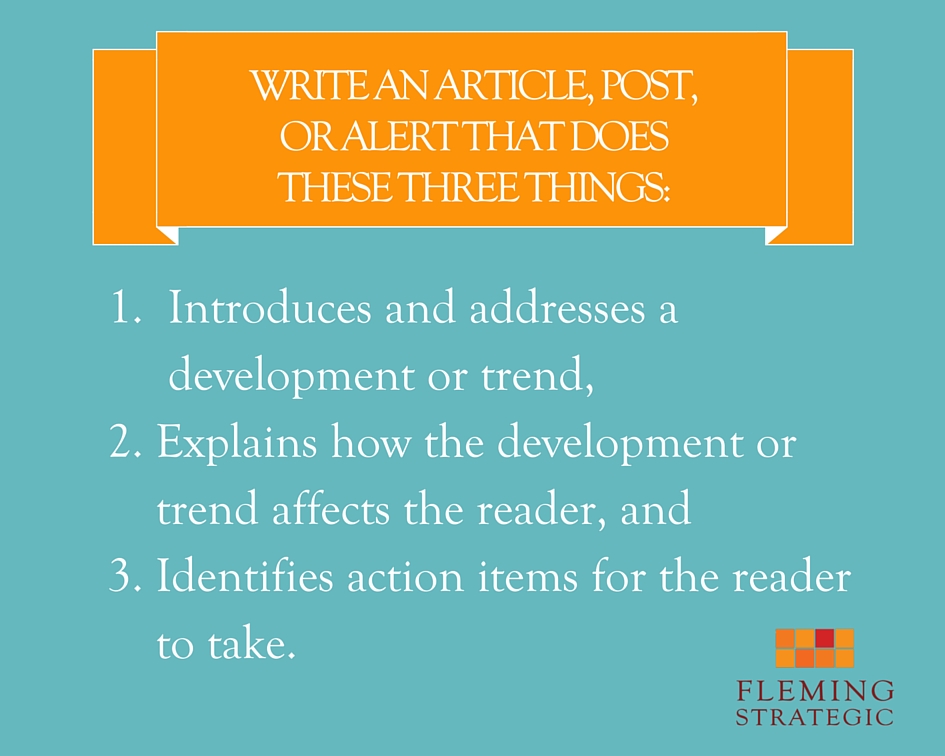How to write well for marketing purposes.
Recently, I had two strategic planning sessions with private clients. As usual, writing (articles, blog posts or comments, newsletters, client alerts, etc.) featured prominently in both of the business development plans we created. And also, as usual, my clients each asked why they should bother writing when so many other lawyers are already writing on the same topic. It’s a smart question that each lawyer must answer before pinning marketing hopes on writing.
Here’s what it boils down to: to be effective, you must cut through the tremendous amount of noise that your target audience confronts daily. Blog posts, articles, and client alerts too often regurgitate the no-longer news about a legal development without extending any analysis that makes the information relevant to the reader. Given the availability of “as it happens” information about legal developments, simply being a reporter won’t cut through the noise, and it won’t get useful marketing attention.
So what does make written product effective for marketing?
Write an article, post, or alert that:
- introduces and addresses a development or trend,
- explains how the development or trend affects the reader, and
- identifies action items for the reader to take.
This infographic summarizes these steps, along with several others that will make your written marketing product useful for readers and therefore effective for marketing.
Is writing an effective tactic in your business development plan? If you’ve recently written something for marketing purposes, review it now to ensure it complies with these guidelines. And if you haven’t written for marketing purposes, brainstorm at least 10 subjects you could write about a set a deadline for yourself.

